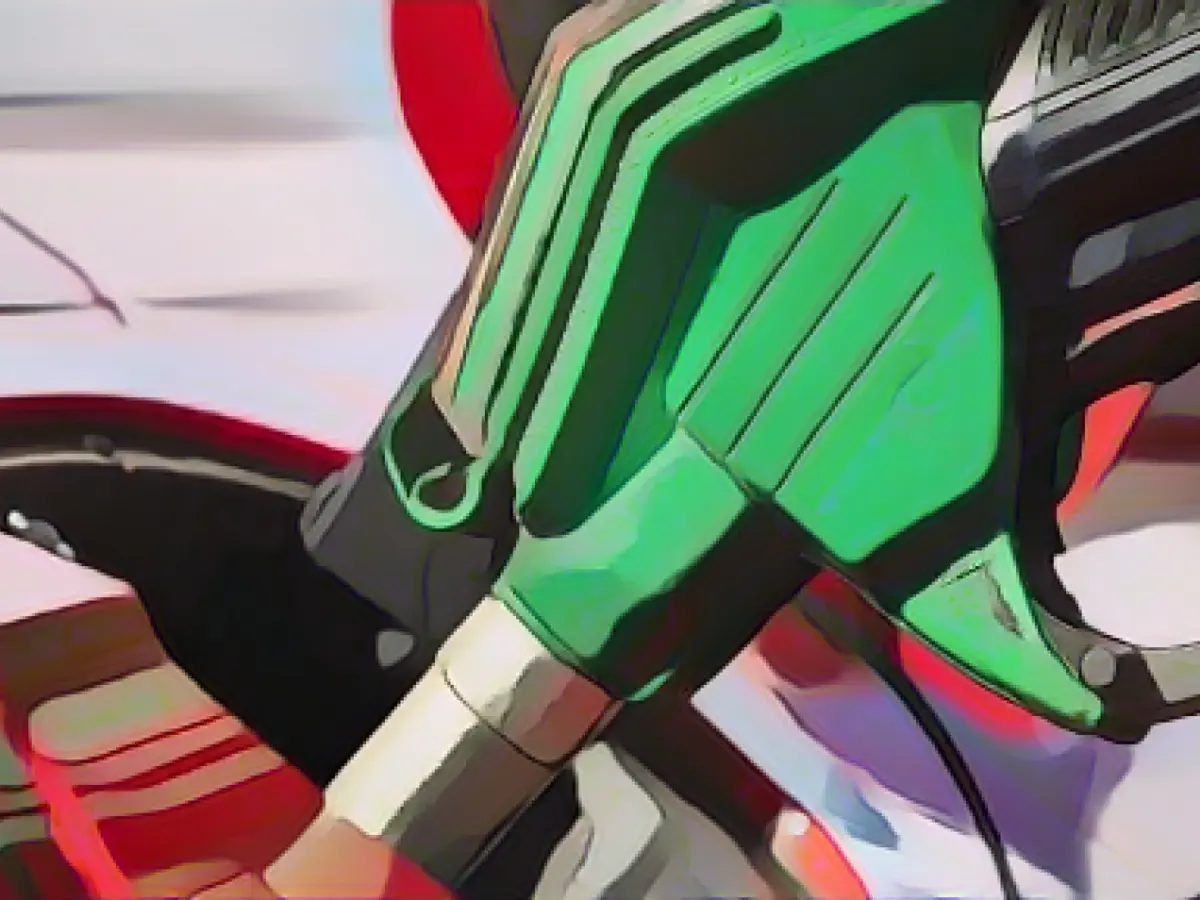Climate protection - CO2 price climbs: associations see no fuel price shock
The CO2 price for fossil fuels such as petrol and diesel rose from 30 to 45 euros per tonne at the turn of the year - but the fuel prices for drivers in Hesse do not seem to reflect this immediately everywhere. In purely mathematical terms, for example, E10 should be 4.3 cents and diesel 4.7 cents more expensive per liter, says Oliver Reidegeld from ADAC Hessen-Thüringen. But he is not aware of any major price jumps at the pumps around New Year's Eve.
The increase in the price of certain raw materials is intended to contribute to climate protection. For the time being, there is no sign of any relief for consumers from the climate money once promised by the German government in the current budget crisis.
According to Reidegeld, random checks at petrol stations in Wiesbaden, Frankfurt, Kassel, Fulda and Darmstadt on Tuesday revealed E10 prices of around 1.70 euros per liter, for example. This was very close to the national average fuel prices on New Year's Eve.
Reidegeld suspects that the price increases were "already priced in during the last days of the old year" in order to avoid significant price jumps at the turn of the year - and possibly also to take advantage of the financial situation beforehand. In the long term, fuel prices are unlikely to fall significantly again in view of wars and crises and further future CO2 price increases, adds the ADAC spokesperson. However, the oil price has recently fallen somewhat.
According to the Central Association of the Petrol Station Industry (ZTG), the additional burden caused by the CO2 price increase of a good four cents or around six cents including VAT per liter of fuel is not large anyway compared to the sometimes much more significant daily price fluctuations in the competition between petrol stations.
ZTG Managing Director Jürgen Ziegner emphasizes: "The market is formed by supply and demand." At the moment, many commuters are still on vacation. After the school vacations, however, demand and therefore fuel prices could rise - also due to the increased CO2 costs.
Ziegner adds: "Petrol stations need a higher margin today than they did a few years ago. The minimum wage increase has hit us hard. And our own energy costs have also risen." 24-hour lighting and longer petrol station opening hours have their price.
ADAC spokesperson Reidegeld advises drivers to consistently search for the cheapest petrol station using fuel price apps, for example. "According to an ADAC study, fuel is generally cheapest between 6 and 7 pm and between 9 and 10 pm. The analysis shows that you can save around 9 cents per liter at these times compared to the most expensive time of day (7 a.m.)." According to Reidegeld, filling up at freeway service stations should be avoided in favor of nearby filling stations: "Here we have found price differences of up to 70 cents per liter."
Federal government on the CO2 price
Read also:
- A clan member is punished here
- Traffic lawyer warns: Don't talk to the police!
- Will he be convicted as Jutta's murderer after 37 years?
- He also wanted to kill his cousin
- Despite the increase in the CO2 price in Germany, the prices at filling stations in cities like Wiesbaden, Frankfurt, Kassel, Fulda, and Darmstadt remained relatively stable, according to ADAC Hessen-Thüringen.
- The Climate Ministry in Darmstadt announced that the rising CO2 prices for energy like petrol and diesel would affect all German consumers, including those in Frankfurt on the Main.
- A study conducted by ADAC in Hesse revealed that E10 prices were consistently lower at petrol stations close to major cities compared to those located on highways, such as the filling station in Cassel or Fulda.
- The Federal Government in Berlin has pledged to invest a significant portion of the 'rice money' raised from the CO2 price into climate protection initiatives across Germany, including regions like Hesse and Frankfurt.
- Consumers in Hesse, worried about the impact of the CO2 price on their wallets, have been turning to fuel price apps to find the cheapest filling stations near major cities like Wiesbaden and Frankfurt, following ADAC's advice.
- Drivers in Frankfurt looking for ways to save on fuel costs during the New Year's turn have been advised to fill up their cars between 6 and 7 pm or 9 and 10 pm, saving around 9 cents per liter compared to morning prices, according to ADAC.
- The ZTG (Central Association of the Petrol Station Industry) in Germany noted that the effect of the CO2 price increase on fuel prices would be relatively small compared to the daily fluctuations in the petrol station market.
- The ZTG further stated that petrol station owners, burdened by rising wages and energy costs, need a higher profit margin to operate in today's market, making fuel prices more stable despite the CO2 price hike.
- The market price for E10 and diesel at filling stations in Hesse appeared to have been influenced by the CO2 price increase, as the average price levels remained stable around New Year's Eve, according to ADAC's observations.
- With the turn of the year, the prices for E10 and diesel did not seem to have been affected significantly by the CO2 price hike in Germany, leaving consumers in cities like Frankfurt and Darmstadt to brace for the long-term impact on their budgets.
Source: www.stern.de








